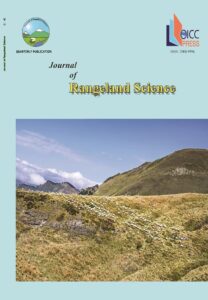Growth Responses of Secale cereale and S. ceremont to Priming Treatments under Salinity Stress
Authors
Abstract
Soil salinity affects a large part of the region in Iran. Salinity covers 12.5% of
total area of the country. Priming of seeds in sodium chloride and water (hydro-priming)
has been reported to be a simple technique for enhancing the seedling establishment and
germination performance in the seeds of many crops and small seeded grasses under the
stress conditions. Therefore, the aim of this research was to study the effects of halo- and
hydro-priming on Secale cereale and S. ceremont growth response under NaCl induced
salinity stress conditions. Seeds of S. cereale and S. ceremont were immersed in sterile
distilled water (hydro-priming). For the halo-priming treatments, concentrations of 125,
250 and 500 mm of sodium chloride were prepared. This experiment was carried out in
three levels (0, 100 and 200 mm) of salinity stress. The means comparison indicates that
the seedling traits of both species are significantly affected by both halopriming and
hydropriming. In both species of Secale, all the traits were decreased significantly by
increasing salt stress levels so that the most reduction of all the traits was observed at the
highest level of salinity stress concentration as compared to the control. Increasing NaCl
concentration in halopriming treatment solution significantly reduced all the traits in both
species so that the most reduction of all traits was observed at the highest level of salinity
stress concentration as compared to the control. S. cereale and S. ceremont appear to be
poor salt-tolerant. Halo-priming in the S. ceremont with the concentratios of 125 and 250
mmol for 24h at the highest level of salt stress showed the alleviation of detrimental effects
of salinity. Halo-priming somewhat in the S. ceremont was suggested in the areas with high
salinity to increase the efficiency of species.



